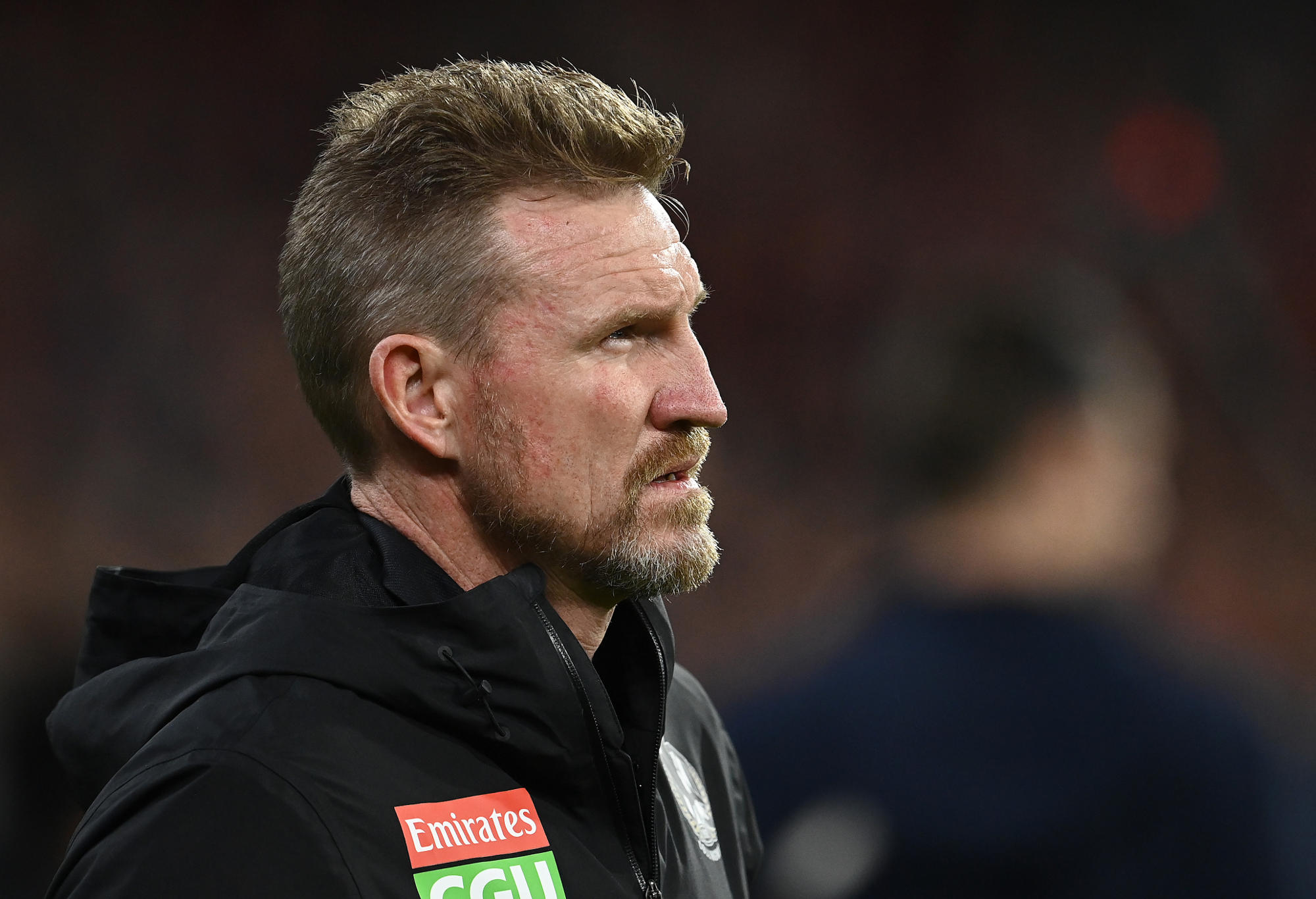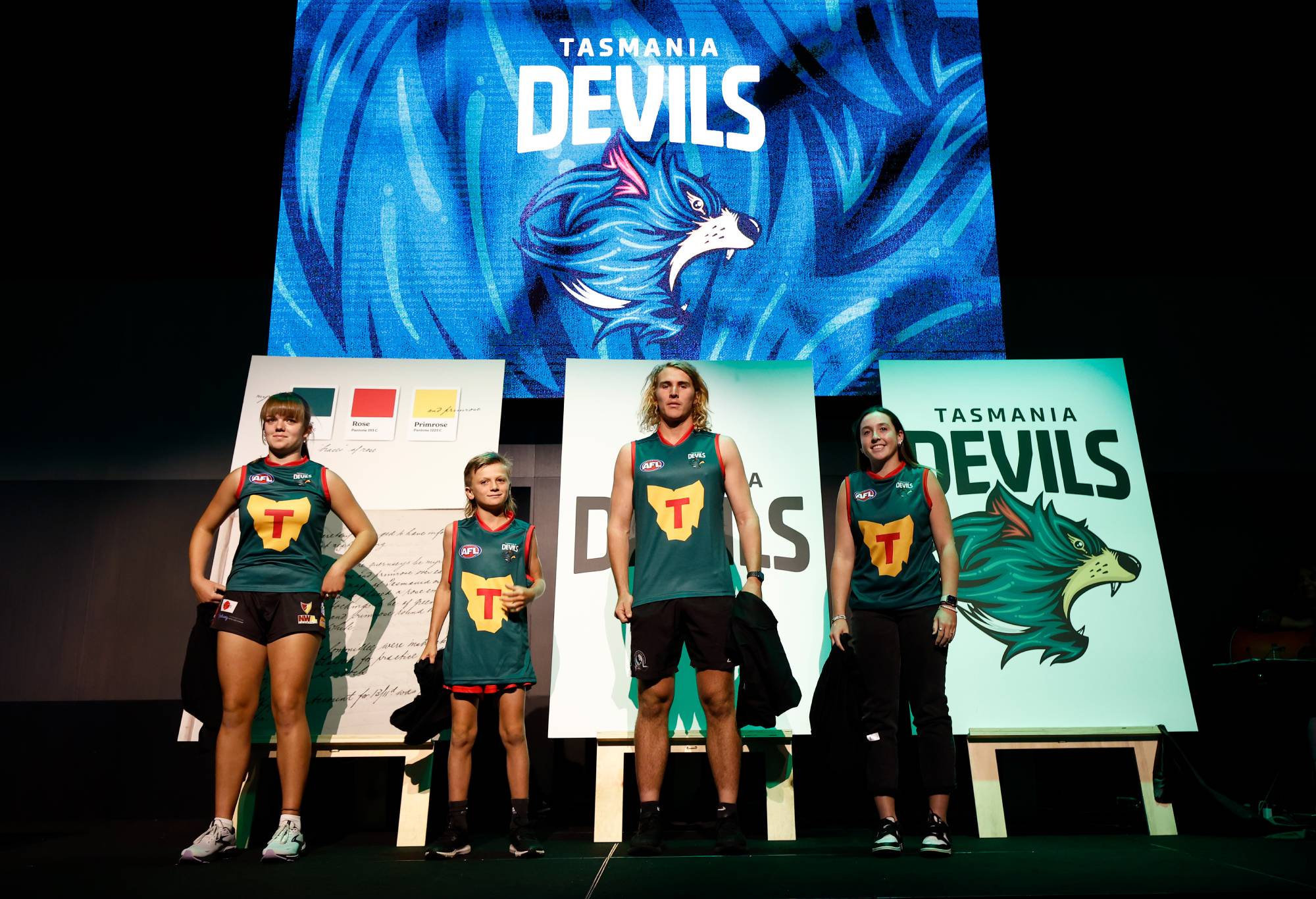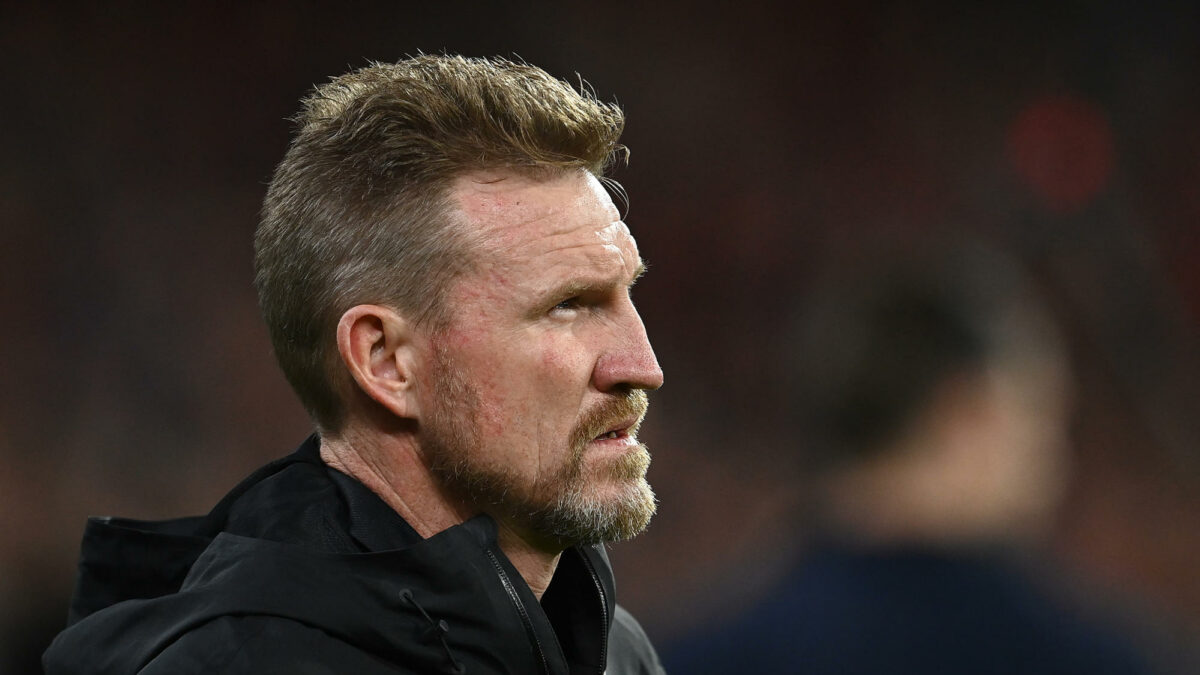Few names evoke as much debate and division as Nathan Buckley.
Revered as a player, often a loner in his team, and then given his inheritance, his transition to coaching was an epic failure.
The reverence paid for a kick short in a Grand Final is subterfuge.
Non-Collingwood fans during his tenure as coach often stated they wanted him to remain as the Collingwood coach so the Pies could retain that irrelevance that under Buckley they had once secured.
Like Port Adelaide, a team to talk about but never a threat to win a GF.
The best recruiter in the game is Derek Hine, and all he needed was a good coach; unfortunately for some of us, he has the best now.
Why is the media beating up Buckley as an answer for the Tasmanian coaching position?
The Greatest Player Myth
First, let’s address the elephant in the room: being a great player doesn’t automatically translate to being a great coach.
Buckley’s illustrious playing career, highlighted by a Brownlow Medal and multiple All-Australian selections, set sky-high expectations.
The great players just get multiple chances post-football – just ask Wayne Carey – and Buckley is no exception.
Collingwood was on the verge of a dynasty and Buckley killed that on day one when he started coaching.
For six years, he sent Collingwood backwards – 4th, 6th, 11th, 11th, 12th, and 13th.
Mark Neeld, Brendan McCartney, Matthew Primus, and Justin Leppitsch had comparable careers for 2-3 years – but they clearly weren’t Eddie McGuire’s mates.
After six years, the Pies fell to the top, 3rd, and then straight away the decline started again, year on year until Bucks was pushed.
Buckley took the Pies forward in one year of his 10-year coaching career.
That is locked down on Buckley’s 10-year coaching record; there is only a 10% chance of his team moving positions up the ladder.
In fact, as history tells us, Collingwood’s rise up the ladder coincided with Buckley having fewer player interactions as he delegated the work to others.

(Photo by Quinn Rooney/Getty Images)
Coaching requires a different skill set than playing. His tactical acumen and game-day decisions were comical, leading to inconsistent performances from his teams.
It was not long ago that we laughed as the Pies fans moaned as they played Buckley’s game.
If you recall, it was a short, indirect kicking game, low risk, ugly boundary side style and now the media giants, our luminary mates club of commentators, want the Buckley style of play perpetuated on the new Tasmanian team.
Shame on the boy’s club for trying to kill off the Tasmanian team for a mate.
The Media Shield
Buckley’s mates in the press create or protect his legacy.
Seriously, Gary Lyon’s views on Buckley are woefully subjective, and that goes for a long list of his media mates.
Like listening to Nick Riewoldt talk about Ross Lyon.
Can you seriously listen to any of the Buckley sycophants? Today, there feels like an ongoing push for Buckley’s reappointment as a coach using the cozy relationship he maintains with the media, a dynamic that has shielded him from the harsh scrutiny he deserves.
Buckley’s media mates have consistently promoted him, glossing over his shortcomings as a coach and failures while hyping up his potential.
This media bias creates an echo chamber where critical analysis of his time as coach is stifled, and more deserving coaching candidates are overlooked.
The reluctance to critique Buckley stems from a combination of personal friendships and a nostalgic reverence for his playing days, but this favouritism does a disservice to any future AFL team he could get to coach.
“Buckley is a great media performer asset to any team…”
That is the highest accolade he can get as a coach. That is not coaching.
A supporter does not want a media performer; a supporter wants a coach who can take them to the promised land.
Look at Beveridge; often, I have no idea what he is rambling on about – but gee, I would take him over Buckley every day of the week. The best two coaches in the country today are Craig McRae and then Sam Mitchell.
If Tassie wants a winning coach – then offer them whatever they want.

The Tasmania Devils foundation jumper is revealed. (Photo by Michael Willson/AFL Photos via Getty Images)
Targeting a % failure so you can have a performing seal in the media to chat with his mates is short-term thinking.
By failing to hold Buckley accountable, the media perpetuates a cycle of mediocrity, preventing better coaching options that could finally lead to Tasmania being successful.
The Grand Final Curse
Buckley’s playing and coaching career will forever be marred by his inability to win the big one.
When he announced he was leaving the Bears for more opportunities to win premierships, it was a curse he put on himself and his teams that he never recovered from.
The 2018 Grand Final loss to West Coast Eagles was a heartbreaker, but it also exposed Buckley’s shortcomings under pressure.
His inability to adapt and make agile in-game adjustments has been a recurring theme. Pies fans should remember he rarely changed strategies in-game (or season) and was often outcoached.
Player Management Woes
A successful coach needs to be a master of man-management, and this is another area where Buckley has fallen short.
Stories of strained relationships with key players have surfaced over the years, painting a picture of a coach who struggles to connect on a personal level.
I suggest someone rings Dane Swan and asks for an off-record view of Buckley’s coaching capability.
A harmonious locker room is essential for success, and Buckley’s inability to foster that environment has been a significant hindrance.

Magpies head coach Nathan Buckley hugs Adam Treloar. (Photo by Quinn Rooney/Getty Images)
Tactical Stubbornness
In the fast-evolving world of AFL, adaptability is key. Unfortunately, Buckley displayed a tactical stubbornness, which we seem to have all forgotten about.
His reluctance to deviate from his game plan, even when it’s clearly not working, cost Collingwood dearly on numerous occasions.
Innovation and flexibility are hallmarks of successful coaches, but Buckley’s rigid approach never really changed.
Why would Round 2 of coaching be different? Why risk a start-up team with a coach with a record that simply does not stack up?
The Culture Conundrum
Team culture is the invisible hand that guides a club to success or failure. Under Buckley, Collingwood’s culture was questioned repeatedly.
From off-field controversies to on-field discipline issues, the Magpies struggled to maintain a positive and cohesive culture.
Look at De Goey now, he went from persecuted under Buckley to protected and revered under McRae.
The Final Verdict
Buckley’s coaching career was mainly lows with a few highs.
If Buckley was as good as his mates in the media perpetuate, he would have willed his side to a GF victory one way or another – watch Pendlebury (with his walking stick) in the fourth quarter of the 2023 GF.
It was epic, it was greatness; Pendles picked up the Pies, put them on his shoulders, and carried them across the line.
Buckley’s tactical inflexibility, lack of success, and player management issues all contributed to his downfall.
Why revisit a proven spud?
Stuart Dew would be a better choice if going down that path – it seems Damien Hardwick and Dew get about the same results out of the same list.
The spud who couldn’t crack the premiership code will always be remembered for being a good player, but obviously, it’s clear to an objective outsider that Buckley’s AFL coaching journey should have now reached its end.
The current media beat-up for Buckley to continue the coaching journey is not based on merit but on relationships.
North Melbourne Kangaroos
v
Western Bulldogs
AFL : Head To Head
Sat, 29 Jun 2024, 13:45
Sydney Swans
v
Fremantle Dockers
AFL : Head To Head
Sat, 29 Jun 2024, 13:45
Gold Coast Suns
v
Collingwood Magpies
AFL : Head To Head
Sat, 29 Jun 2024, 16:35
Geelong Cats
v
Essendon Bombers
AFL : Head To Head
Sat, 29 Jun 2024, 19:30
Adelaide Crows
v
Greater Western Sydney Giants
AFL : Head To Head
Sat, 29 Jun 2024, 19:30
St Kilda Saints
v
Port Adelaide Power
AFL : Head To Head
Sun, 30 Jun 2024, 13:10
Richmond Tigers
v
Carlton Blues
AFL : Head To Head
Sun, 30 Jun 2024, 15:20
West Coast Eagles
v
Hawthorn Hawks
AFL : Head To Head
Sun, 30 Jun 2024, 16:40
* Odds Correct At Time Of Posting. Check PlayUp Website For Latest Odds
What are you really gambling with?
For free and confidential support call 1800 858 858 or visit gamblinghelponline.org.au

